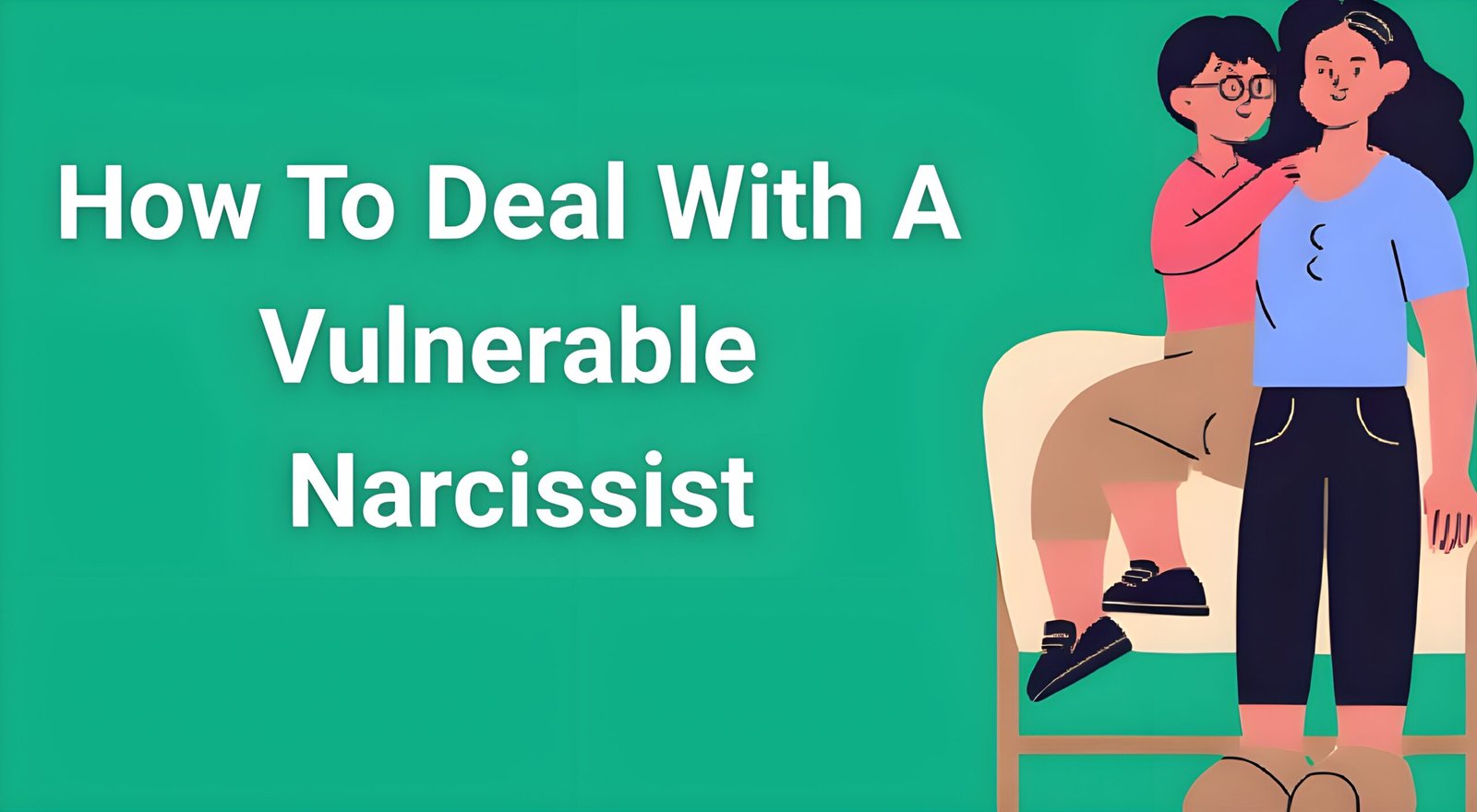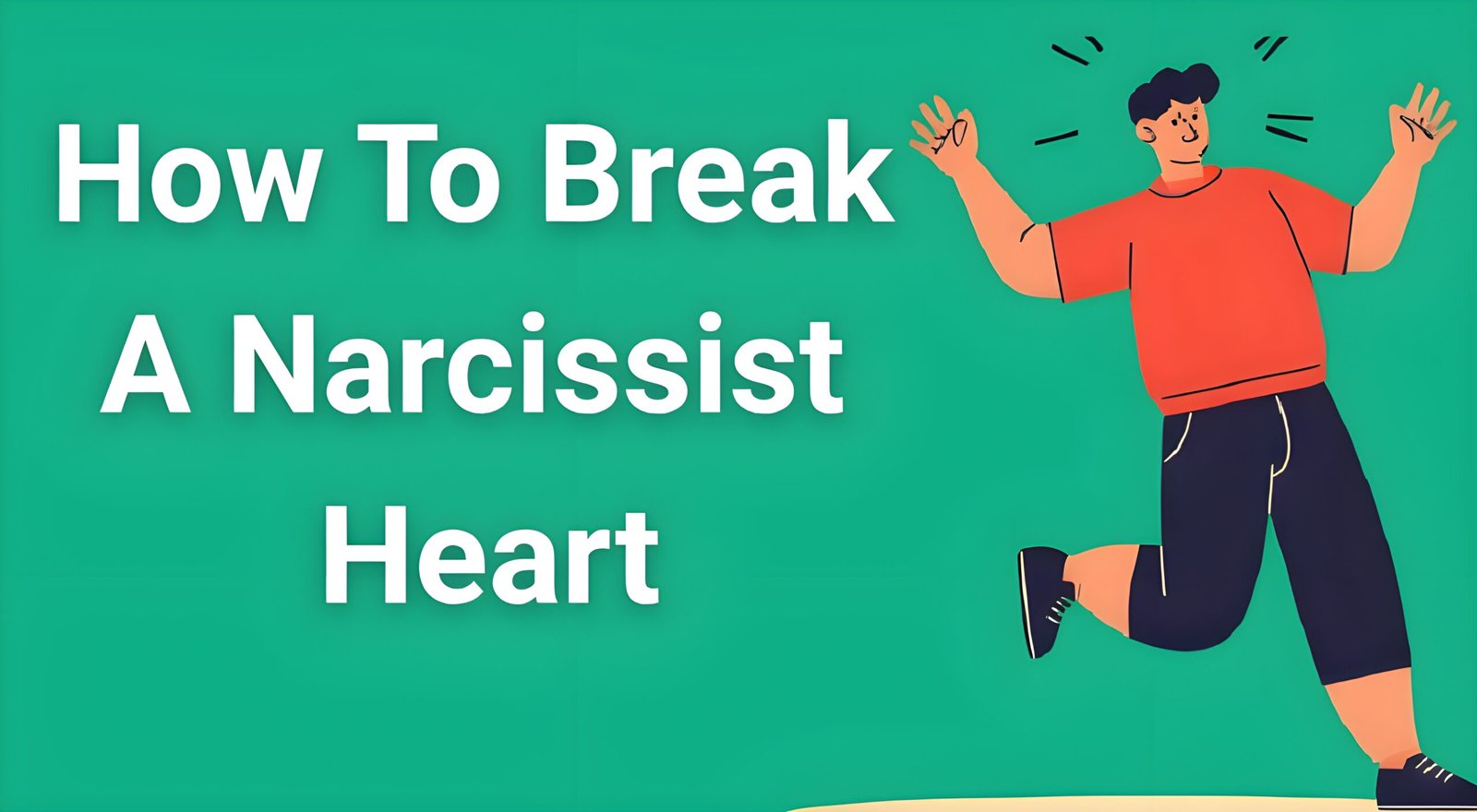Learning how to deal with a vulnerable narcissist can feel like navigating an emotional minefield. Unlike the grandiose narcissist who demands the spotlight, vulnerable narcissists operate in the shadows, using their apparent fragility as a weapon of manipulation. If you’re reading this, you’ve likely experienced the confusing cycle of walking on eggshells around someone who seems perpetually wounded yet somehow always manages to make everything about themselves.
- Understanding Vulnerable Narcissism: The Hidden Face of Self-Centeredness
- Recognizing the Warning Signs: When Sensitivity Becomes Manipulation
- The Psychology Behind Vulnerable Narcissistic Behavior
- Setting Boundaries That Actually Work
- Managing Emotional Manipulation Tactics
- The Trauma Bond Connection: Breaking Free from Emotional Addiction
- Protecting Your Mental Health and Self-Esteem
- When Professional Help Is Needed
- Creating Safety Plans for Different Scenarios
- The Role of Forgiveness and Acceptance
- Building Healthier Relationships Moving Forward
- Frequently Asked Questions
- Taking Back Control of Your Life
The journey to understanding vulnerable narcissism begins with recognizing that you’re not dealing with ordinary emotional sensitivity. You’re facing a complex personality pattern where genuine insecurity intertwines with entitled manipulation, creating a web that can trap even the most compassionate people. The good news? Once you understand the dynamics at play, you can develop effective strategies to protect your emotional well-being while maintaining appropriate boundaries.
Understanding Vulnerable Narcissism: The Hidden Face of Self-Centeredness
Vulnerable narcissism, also known as covert narcissism, represents a more subtle form of narcissistic personality disorder. While grandiose narcissists parade their superiority openly, vulnerable narcissists hide their sense of entitlement behind a mask of victimhood and emotional fragility. This makes them particularly challenging to identify and even more difficult to address.
The vulnerable narcissist experiences the same core features of narcissism – grandiosity, entitlement, and lack of empathy – but expresses these traits through passive-aggressive behaviors, chronic victimhood, and manipulative vulnerability. They’ve learned that appearing wounded and sensitive garners them the attention and control they crave, often more effectively than overt dominance.
Research in personality psychology reveals that vulnerable narcissists struggle with intense shame and feelings of inadequacy, which they mask through defensive behaviors. They’re hypersensitive to criticism, prone to emotional outbursts when their fragile self-image is threatened, and skilled at eliciting sympathy from others. This creates a perfect storm for emotional manipulation that can leave you questioning your own perceptions and exhausted from constantly managing their emotional needs.
Recognizing the Warning Signs: When Sensitivity Becomes Manipulation
Understanding how to deal with a vulnerable narcissist starts with accurate identification. These individuals often present themselves as highly sensitive, misunderstood, or unfairly treated by life. However, several key patterns distinguish genuine sensitivity from narcissistic manipulation.
The vulnerable narcissist consistently positions themselves as the victim in every situation, regardless of their role in creating conflict. They have an uncanny ability to twist circumstances to highlight their suffering while minimizing or ignoring the impact of their behavior on others. When confronted about harmful actions, they immediately shift focus to their own pain, leaving you feeling guilty for bringing up legitimate concerns.
Their empathy operates on a selective basis. While they may show intense emotional reactions to their own struggles, they demonstrate little genuine concern for others’ experiences unless it directly affects them. They might appear caring during crisis situations, but this attention often feels performative and self-serving rather than authentically compassionate.
Another telling sign involves their relationship with boundaries. Vulnerable narcissists often violate boundaries while framing their intrusions as care or concern. They may read your private messages, show up uninvited, or demand constant access to your emotional energy, all while claiming they’re just trying to help or connect with you.
Perhaps most significantly, vulnerable narcissists excel at creating emotional emergencies that require immediate attention and support. These crises often occur when attention has been focused elsewhere or when they face accountability for their actions. The timing rarely appears coincidental once you begin recognizing the pattern.
The Psychology Behind Vulnerable Narcissistic Behavior
To effectively manage your relationship with a vulnerable narcissist, it helps to understand the psychological mechanisms driving their behavior. Unlike grandiose narcissists who maintain their self-image through overt superiority, vulnerable narcissists rely on others’ caretaking responses to regulate their self-esteem.
Their childhood experiences often involved inconsistent parenting – alternating between emotional neglect and overwhelming enmeshment. This created an internal template where love and attention became associated with crisis and emotional intensity. As adults, they unconsciously recreate these dynamics, using emotional volatility to secure the connection and validation they desperately crave.
The vulnerable narcissist operates from a fundamentally fragmented sense of self. Deep down, they experience overwhelming shame and feelings of defectiveness, which they can’t tolerate consciously. Instead, they project these uncomfortable feelings outward, constantly seeking external validation to fill an internal void that can never be permanently satisfied.
This creates a psychological dependency on others’ emotional responses. When you react with concern, guilt, or caretaking to their distress, you inadvertently reinforce the very behaviors that drain your energy. They learn that vulnerability and crisis effectively control others’ attention and behavior, making these strategies increasingly automatic and sophisticated over time.
Understanding this dynamic doesn’t excuse their behavior, but it does provide crucial insight for developing effective response strategies. When you stop providing the emotional reactions they seek, their manipulative behaviors often intensify temporarily before eventually diminishing.
Setting Boundaries That Actually Work
The cornerstone of learning how to deal with a vulnerable narcissist involves establishing and maintaining firm boundaries. However, traditional boundary-setting approaches often prove insufficient because vulnerable narcissists are masters at circumventing direct confrontation through emotional manipulation.
Effective boundaries with vulnerable narcissists must be both clear and emotionally neutral. Instead of explaining why you’re setting a limit (which gives them ammunition for argument and manipulation), state your boundary simply and move on. For example, rather than saying “I can’t talk right now because you always call during my family time and it’s not fair,” try “I’m not available to talk right now. I’ll call you tomorrow.”
The key principle involves removing emotional engagement from boundary enforcement. Vulnerable narcissists thrive on emotional intensity, whether positive or negative. When you respond with frustration, guilt, or lengthy explanations, you’re providing exactly the type of engagement that fuels their behavior. Emotional detachment doesn’t mean becoming cold or uncaring; it means refusing to be drawn into their emotional chaos.
Consistency becomes absolutely crucial when implementing boundaries. Vulnerable narcissists are notorious for testing limits repeatedly, often escalating their emotional appeals when they encounter resistance. If you maintain your boundary 90% of the time but give in during particularly intense moments, you’ve inadvertently taught them that escalation works.
It’s also important to prepare for boundary violations ahead of time. Develop specific scripts for common situations and practice delivering them in a calm, matter-of-fact tone. When they claim you’re being cruel or uncaring for maintaining your limits, resist the urge to defend yourself or provide reassurance. Simply restate your boundary and change the subject or end the interaction if necessary.
Managing Emotional Manipulation Tactics
Vulnerable narcissists employ sophisticated emotional manipulation strategies that can be difficult to recognize and resist. Their tactics often target your compassion and desire to help, making you feel guilty for protecting your own emotional well-being.
One of their most effective weapons involves emotional blackmail through threats of self-harm or despair. When faced with boundaries or accountability, they might suggest they can’t go on without your support or that your actions are causing them unbearable pain. This puts you in an impossible position where maintaining healthy limits feels like cruelty.
When encountering these situations, remember that you’re not responsible for managing another adult’s emotional regulation or life choices. If they express genuine suicidal thoughts, treat it as a mental health emergency requiring professional intervention, not personal caretaking. Offer to help them contact crisis services or mental health professionals, but don’t accept responsibility for preventing their emotional distress.
Another common tactic involves comparative suffering, where they minimize your experiences by highlighting how much worse their situation is. This effectively shuts down your emotional needs while positioning them as the primary victim deserving attention and support. Learning to recognize this pattern allows you to maintain perspective on your own legitimate needs and experiences.
Gaslighting represents perhaps their most insidious manipulation strategy. Vulnerable narcissists often distort conversations and events to make you question your memory and perceptions. They might claim they never said something hurtful, insist you’re being too sensitive, or reframe their harmful behavior as good intentions misunderstood.
Protecting yourself from gaslighting requires keeping records of important interactions and trusting your emotional responses. If someone consistently leaves you feeling confused, guilty, or like you’re walking on eggshells, pay attention to these feelings rather than dismissing them as oversensitivity.
The Trauma Bond Connection: Breaking Free from Emotional Addiction
Many people struggling with how to deal with a vulnerable narcissist find themselves caught in what psychologists call a trauma bond – an emotional attachment formed through cycles of intermittent reinforcement, where periods of kindness and connection alternate with emotional abuse or withdrawal.
Vulnerable narcissists are particularly skilled at creating trauma bonds because their emotional volatility creates an addictive cycle of relief and anxiety. During calm periods, you feel grateful for their “good” behavior and hopeful that the relationship has improved. When they return to manipulative tactics, you often blame yourself or work harder to restore the temporary peace you experienced.
This cycle triggers the same neurological responses as substance addiction, making it extraordinarily difficult to break free through willpower alone. Your brain becomes conditioned to seek relief from the anxiety they create by trying to please them or fix the relationship. Understanding this dynamic is crucial for developing effective recovery strategies.
Breaking a trauma bond requires recognizing that the “good” moments aren’t evidence of genuine change or your success in managing the relationship. Instead, they’re part of the manipulation cycle designed to keep you engaged and hopeful. When you stop interpreting their kindness as progress and start seeing it as another form of control, you can begin to detach emotionally.
For those who recognize themselves in this pattern, specialized resources can provide crucial support. A structured approach to trauma bond recovery, such as the strategies outlined in evidence-based workbooks designed specifically for this purpose, can provide the step-by-step guidance needed to break free from these addictive relationship cycles.
Protecting Your Mental Health and Self-Esteem
Living with or around a vulnerable narcissist can seriously impact your mental health and self-perception. Their constant need for validation often comes at the expense of your emotional resources, leaving you feeling drained, confused, and questioning your own worth and perceptions.
Self-care becomes not just important but essential when dealing with vulnerable narcissism. This goes beyond typical relaxation activities to include actively protecting your psychological boundaries and rebuilding your sense of self separate from their emotional needs and crises.
Developing a strong support network outside the relationship provides crucial perspective and validation. Vulnerable narcissists often isolate their targets through time and energy demands, making outside connections feel burdensome or disloyal. Maintaining friendships and activities independent of their involvement helps preserve your identity and provides reality checks when you’re feeling confused or manipulated.
Regular self-reflection practices, such as journaling or meditation, can help you stay connected to your own thoughts and feelings rather than becoming overwhelmed by theirs. Pay attention to patterns in your emotions and energy levels after interactions. This data can help you identify specific triggers and develop personalized coping strategies.
Professional support becomes invaluable when dealing with complex narcissistic relationships. A qualified therapist can help you navigate the confusing dynamics, develop effective strategies, and process any trauma responses you may have developed. They can also help you determine whether the relationship is salvageable or if protecting your wellbeing requires creating distance.
When Professional Help Is Needed
Recognizing when a situation requires professional intervention represents a crucial skill in learning how to deal with a vulnerable narcissist. Some circumstances exceed what personal strategies alone can address and may require expert guidance to navigate safely.
If you find yourself constantly questioning your own reality, experiencing symptoms of anxiety or depression, or feeling unable to function normally due to the relationship dynamics, these are clear indicators that professional support could be beneficial. A qualified mental health professional can help you distinguish between normal relationship challenges and psychological manipulation.
Situations involving threats of self-harm, actual self-harm, or any form of physical intimidation require immediate professional attention. While vulnerable narcissists rarely engage in overt physical violence, some may use threats or self-destructive behaviors as manipulation tactics. These situations exceed the scope of personal boundary-setting and require crisis intervention services.
When children are involved in the dynamic, either as your own children or the narcissist’s children, professional guidance becomes even more critical. Vulnerable narcissists often involve children in their emotional manipulation, creating complex family dynamics that require specialized intervention strategies to protect everyone involved.
For those seeking clarity about their specific situation, a comprehensive analysis by a narcissistic abuse specialist can provide invaluable insight. Professional assessment can help you understand exactly what you’re dealing with, validate your experiences, and develop a personalized strategy for moving forward. This type of specialized support can be particularly helpful when you’re unsure whether someone’s behavior constitutes genuine narcissistic patterns or normal relationship difficulties.
Creating Safety Plans for Different Scenarios
Developing comprehensive safety plans helps you respond effectively to various situations that may arise when dealing with a vulnerable narcissist. These plans provide structure and clarity during emotionally charged moments when your judgment might be compromised by manipulation or crisis.
For situations where you must maintain contact – such as co-parenting, workplace relationships, or family connections – develop specific protocols for different types of interactions. This might include having a support person present during important conversations, limiting communication to written formats, or setting specific time boundaries for phone calls or visits.
Financial safety becomes particularly important if you share resources with a vulnerable narcissist. They may use financial dependency or confusion as control mechanisms. Ensure you have access to your own financial resources and understand all shared financial obligations. If possible, work toward financial independence to reduce their ability to control you through money-related manipulation.
When children are involved, develop age-appropriate strategies to protect them from manipulation while maintaining their relationship with the narcissistic parent when safe and court-ordered. This might include teaching children about emotional boundaries, providing them with safe adults to talk to, and monitoring their emotional wellbeing for signs of manipulation or distress.
For those considering ending the relationship entirely, develop a comprehensive exit strategy that considers all potential complications. Vulnerable narcissists often escalate their behavior when they sense loss of control, so planning for various contingencies helps ensure your safety during this vulnerable transition period.
If you’re in a situation where leaving isn’t immediately possible – whether due to financial constraints, legal complications, or safety concerns – specialized strategies can help you survive and maintain your sanity while working toward eventual freedom. Understanding how to protect yourself psychologically while still in the situation becomes crucial for your long-term wellbeing.
The Role of Forgiveness and Acceptance
One of the most challenging aspects of learning how to deal with a vulnerable narcissist involves navigating questions of forgiveness and acceptance. Many people struggle with feeling guilty for setting boundaries or ending relationships with someone who appears genuinely vulnerable and wounded.
Understanding the difference between forgiveness and enabling becomes crucial in these situations. True forgiveness doesn’t require you to continue accepting harmful behavior or sacrificing your wellbeing for someone else’s comfort. You can acknowledge their pain and trauma while still protecting yourself from their destructive patterns.
Acceptance, in this context, means accepting the reality of who they are rather than continuing to hope they’ll change into who you need them to be. This doesn’t mean accepting abusive treatment, but rather accepting that their behavior patterns are deeply ingrained and unlikely to change without significant professional intervention that they may never pursue.
Many people find it helpful to grieve the relationship they wished they could have had rather than continuing to chase an impossible ideal. This grieving process allows you to honor your genuine care for the person while also acknowledging the reality that the relationship as it exists isn’t healthy or sustainable.
Practicing self-forgiveness becomes equally important. Many people blame themselves for “falling for” manipulation or staying in harmful dynamics longer than they think they should have. Remember that vulnerable narcissists are skilled manipulators who specifically target compassionate, caring people. Your empathy and desire to help aren’t character flaws; they’re positive qualities that were exploited.
Building Healthier Relationships Moving Forward
Once you’ve developed skills for dealing with vulnerable narcissism, you’ll likely find yourself better equipped to identify and maintain healthier relationships in the future. The awareness and boundary-setting skills you develop serve as protection against various forms of manipulation and emotional abuse.
Pay attention to early warning signs in new relationships, such as love-bombing, excessive neediness, or attempts to rush intimacy and commitment. Healthy relationships develop gradually with mutual respect for boundaries and individual autonomy. Be wary of people who seem to have dramatic crises or conflicts in most of their other relationships.
Practice maintaining your own identity and interests within relationships rather than becoming completely focused on meeting someone else’s emotional needs. Healthy partners encourage your independence and personal growth rather than requiring constant attention and caretaking.
Develop confidence in trusting your emotional responses to people and situations. If someone consistently leaves you feeling drained, confused, or walking on eggshells, pay attention to these feelings rather than rationalizing them away. Your emotional responses provide valuable data about relationship dynamics.
Consider working with a therapist to process any trauma responses you may have developed and to strengthen your ability to identify and maintain healthy relationship patterns. Many people find that addressing their experiences with narcissistic manipulation helps them develop stronger, more authentic relationships in all areas of their life.
Frequently Asked Questions
Q: How can I tell if someone is a vulnerable narcissist or just genuinely sensitive? A: The key difference lies in reciprocity and respect for boundaries. Genuinely sensitive people can acknowledge when their behavior affects others and make efforts to change. Vulnerable narcissists consistently make their sensitivity your responsibility to manage and show little concern for how their behavior impacts you.
Q: Will setting boundaries make the vulnerable narcissist’s behavior worse? A: Initially, yes. Most narcissists escalate their manipulation when they encounter resistance, testing whether your boundaries are real. This temporary increase in difficult behavior often precedes either improvement (if they learn boundaries are firm) or their decision to find easier targets elsewhere.
Q: Can vulnerable narcissists change with therapy? A: Change is possible but requires genuine motivation to examine their behavior patterns and develop healthier coping mechanisms. Many vulnerable narcissists resist therapy or use it to further validate their victim narratives rather than addressing their manipulation patterns.
Q: Should I tell others about the vulnerable narcissist’s behavior? A: This depends on your safety and the specific situation. If you’re being harmed, seeking support from trusted friends, family, or professionals is appropriate. However, be prepared that others may not understand the dynamics, especially if the narcissist presents well in public.
Q: How do I co-parent with a vulnerable narcissist? A: Focus on documented communication, firm boundaries around parenting decisions, and protecting your children from being used as emotional tools. Consider parallel parenting rather than co-parenting, minimizing direct interaction while maintaining appropriate involvement in your children’s lives.
Q: Is it possible to maintain a relationship with a vulnerable narcissist? A: Some people successfully maintain limited relationships by establishing very firm boundaries and accepting the relationship’s limitations. However, this requires exceptional emotional resilience and may not be possible if the narcissist’s behavior is severely harmful or escalating.
Taking Back Control of Your Life
Learning how to deal with a vulnerable narcissist ultimately comes down to reclaiming your right to emotional safety and authentic relationships. While you cannot control their behavior, you have complete power over your responses and the level of access you grant them to your emotional energy.
Remember that protecting yourself from manipulation isn’t cruel or selfish – it’s necessary for your mental health and wellbeing. You deserve relationships that are mutual, respectful, and emotionally nourishing rather than constantly draining and confusing.
The skills you develop in dealing with vulnerable narcissism will serve you well in all your relationships, helping you identify red flags, maintain healthy boundaries, and trust your own perceptions. While the learning process can be challenging, it ultimately leads to stronger, more authentic connections with people who genuinely care about your wellbeing.
Your journey toward emotional freedom and healthier relationships is valid and important. Whether you choose to maintain limited contact, work on improving the relationship dynamic, or create distance for your safety, trust your instincts and prioritize your wellbeing. You have the strength and wisdom to navigate this difficult situation and create the peaceful, authentic life you deserve.
If you’re feeling overwhelmed by these dynamics and need personalized guidance for your specific situation, remember that professional support is available. Understanding exactly what you’re dealing with and developing a customized strategy for your circumstances can provide the clarity and confidence you need to move forward safely and effectively.






